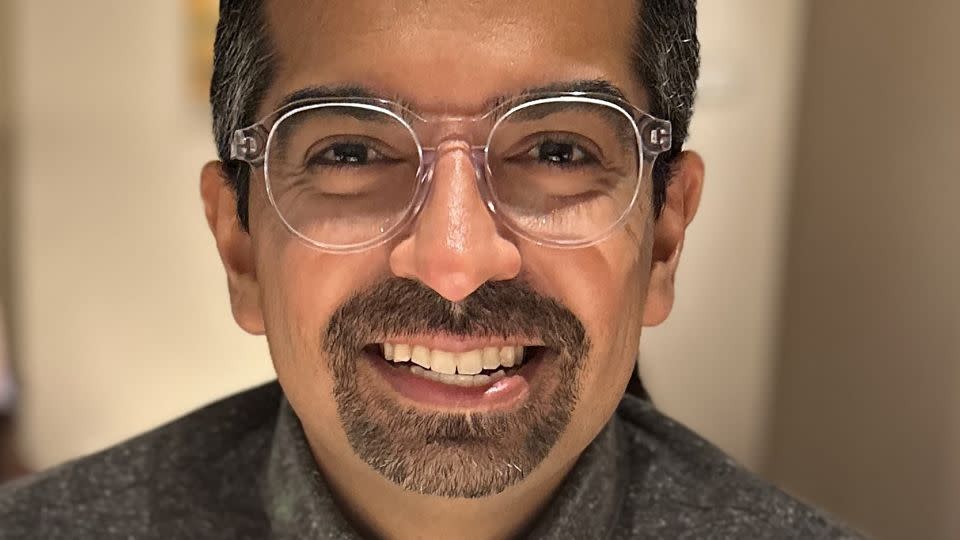Oncologist: Kate’s diagnosis is part of a troubling trend

[ad_1]
Editor’s note: Dr. Jalal Baig is a physician and writer based in Chicago whose work has appeared in The Washington Post, NBC News, The Atlantic, Foreign Policy and other publications. The views expressed in this commentary are his own. Read more opinion at CNN.
The recent revelation of the cancer diagnosis of Catherine, Princess of Wales, who is 42, has left many observers shocked. As a medical oncologist, I am heartbroken — but hardly surprised.

Early-onset cancer, which is defined as happening in adults under 50 years of age, is no anomaly. In fact, it is part of a rising global trend in which newly diagnosed cancer patients are getting younger. Further, it deflates the myth that cancer is the preserve of older people.
During the past week alone, I saw a 37-year-old with breast cancer that had already metastasized to her lymph nodes, bones, lung and liver. In the room next door was a 45-year-old with colon cancer that had spread so diffusely throughout the liver that it had become packed and enlarged with the tumors. Both patients had stage IV cancers that can potentially be controlled for a finite time but are no longer curable.
The global incidence of early-onset cancer increased by 79.1% and early-onset cancer deaths rose by 27.7% from 1990 to 2019, a 2023 study in the journal BMJ Oncology found. More granular data on this uptick published last year in the Journal of the American Medical Association showed that from 2010 to 2019 in the United States, breast cancer accounted for the highest number of cases in this younger population, while rates of gastrointestinal cancers were rising the fastest.
This jarring increase in gastrointestinal cancers alone captures the implications and risks associated with a person’s birth year. As Dr. Kimmie Ng, a medical oncologist at Dana-Farber Cancer Institute, told The Boston Globe last year, “People born in 1990 have over double the risk of getting colon cancer compared to those born in 1950. And quadruple the risk of getting rectal cancer.”
As these cases of early-onset cancers mount, there is added urgency to identify why this rise in cancer among younger people is unfolding and who is at heightened risk. At least part of the answer appears to be found in the changes to nutrition and lifestyle that took hold in the middle of the last century.
Notably, the population’s underlying genetic risks haven’t changed in the past several decades, bolstering the case that environment and lifestyle have a greater role in these cancers than our genes. Culprits may include ultraprocessed foods, sugary drinks, red meat, smoking, alcohol, sleep alterations, obesity and physical inactivity. Alone and especially in concert, these factors can alter the internal processes of our bodies by upsetting metabolism and ratcheting up inflammation.
Further research efforts are underway examining whether changes in the gut microbiome, the trillions of microbes that reside inside us, are increasing our bodies’ vulnerability to cancer. This community of microbes is a crucial contributor to health, affecting digestion and the immune system. Poor diet, excessive antibiotic use and certain medicines can cause an upheaval in this microbiome, which could then play a role in facilitating cancer.

Because cancer is a disease understood to develop over decades as changes in DNA accumulate and spawn tumors, a person diagnosed at a younger age may have been exposed to risk factors as a baby or in utero. Research is also focused here currently, with studies associating greater risk with cesarean delivery in females and a synthetic form of progesterone used to prevent premature labor.
But as I have seen regularly in my own cancer clinic, obesity and lifestyle alone cannot account for all the young patients being diagnosed. Many whom I am treating are healthy, eat judiciously and exercise regularly. And so causation for their diseases still remains beyond science’s grasp.
As Dr. Suneel Kamath, a gastrointestinal medical oncologist at the Cleveland Clinic Taussig Cancer Institute and member of the newly launched Center for Young-Onset Colorectal Cancer at the Cleveland Clinic, told me, “The short answer is we really don’t know.”
The one certainty at this moment, however, is that underdiagnosis of these early-onset cancers is prevalent and consequential. Primary care physicians need to be educated on the rising presence of cancer in those younger than 50 and why age should not be used to downplay a presenting patient’s symptoms.
On the other side, people should not neglect persistent symptoms of any kind and be cognizant of a family history of cancer. Often, young patients will have to advocate aggressively for themselves since it can take multiple appointments before a cancer diagnosis is made.
And because early-onset cancers are often diagnosed at advanced stages, they were once thought to be biologically different and more pernicious than their older counterparts. Often, these are simply found late and metastasized because of a delay in diagnosis and not due to any particularly aggressive quality.
Once treatment starts, the stakes are also different for those in their 20s, 30s and 40s. Cancer drugs can cause cardiovascular issues and secondary cancers years after treatment. Younger patients may be pregnant at the start of therapy or worry about the effects on fertility. Further, there are concerns about long-term cognitive damage after chemotherapy, especially as people return to work.
“It is disconcerting talking to people about missing class for college and parental responsibilities while getting chemotherapy,” Kamath added. “These people should not be dealing with this.”
This unsettling phenomenon in cancer care will necessitate a redoubling of our collective efforts for funding, further research, education campaigns and revision of screening guidelines.
Already, much of this is in motion. In a notable move, the US Preventive Services Task Force, a volunteer panel of experts in disease prevention, now recommends that colorectal cancer screening should start at age 45 for people at average risk of the disease.
Even as considerable advances have been made in cancer outcomes, true progress can’t be declared if certain age groups are worryingly falling behind. The Princess of Wales’ public disclosure of her cancer is a reminder of the work left to do.
For more CNN news and newsletters create an account at CNN.com
[ad_2]